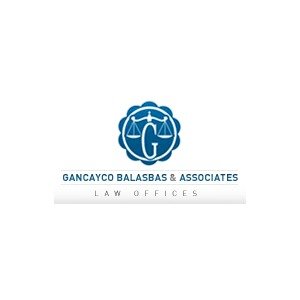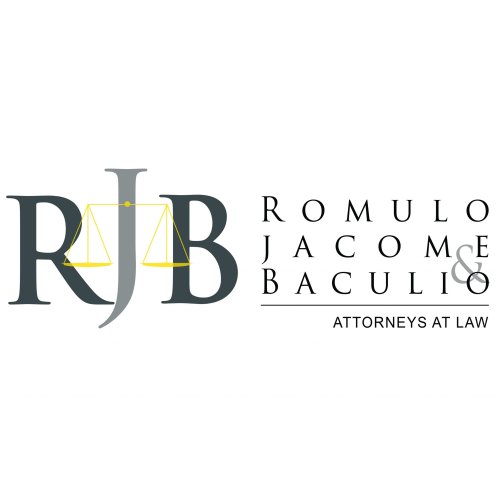Best Nonprofit & Charitable Organizations Lawyers in Manila
Share your needs with us, get contacted by law firms.
Free. Takes 2 min.
List of the best lawyers in Manila, Philippines
About Nonprofit & Charitable Organizations Law in Manila, Philippines
Nonprofit and charitable organizations in Manila, Philippines, are entities that operate without the primary aim of generating profit. They are dedicated to serving social, educational, religious, or charitable purposes. These organizations play a crucial role in Philippine society by addressing various needs, from poverty alleviation to supporting education and healthcare initiatives. Legal recognition and regulation of these entities typically involve registration, compliance with specific operational guidelines, and adherence to financial and governance reporting standards to ensure transparency and accountability.
Why You May Need a Lawyer
There are several situations where individuals or organizations may need legal assistance in the realm of nonprofits and charitable organizations in Manila:
- Establishing a Nonprofit: Navigating the registration and compliance processes can be complex, requiring legal expertise to ensure proper setup and operation.
- Tax Exemption: Applying for and maintaining tax-exempt status involves specific legal criteria and documentation that may necessitate professional advice.
- Regulatory Compliance: Nonprofits must adhere to local laws and regulations regarding governance, reporting, and financial transparency.
- Drafting Bylaws: Legal support is required to create bylaws that align with local laws while addressing organizational needs.
- Dispute Resolution: Legal disputes, whether internal or external, require knowledgeable legal intervention.
- Mergers or Dissolution: These significant organizational changes require careful legal oversight to protect the interests of stakeholders.
Local Laws Overview
The legal landscape for nonprofit and charitable organizations in Manila is defined by several key legislations and regulatory requirements:
- Corporation Code of the Philippines: Governs the formation, operation, and dissolution of nonprofit organizations, especially those registered as non-stock corporations.
- Bureau of Internal Revenue (BIR) Regulations: Outlines the tax responsibilities of nonprofits, including qualifications for tax-exempt status and necessary documentation.
- SEC Memorandum Circulars: The Securities and Exchange Commission (SEC) issues guidelines for registration, governance policies, and operational conduct of nonprofit entities.
- Special Laws: Certain nonprofits, like those in education or healthcare, might need to comply with additional sector-specific regulations.
Frequently Asked Questions
What is a nonprofit organization in the Philippines?
A nonprofit organization in the Philippines operates primarily for social, educational, charitable, or religious purposes without seeking to make a profit for distribution to its members.
How do I register a nonprofit organization in Manila?
Registration involves submitting necessary documents, such as articles of incorporation and bylaws, to the Securities and Exchange Commission (SEC), along with satisfying any additional requirements such as filing with the Bureau of Internal Revenue (BIR) for tax purposes.
What are the requirements for tax-exempt status?
To qualify for tax-exempt status, an organization must align with the criteria set by the BIR, which often includes operating exclusively for exempt purposes and meeting specific organizational and operational tests.
Can a nonprofit organization accept donations in Manila?
Yes, nonprofit organizations can accept donations, and these are often tax-deductible for the donor if the nonprofit is properly registered and recognized by the BIR as tax-exempt.
What are the governance requirements for a nonprofit organization?
Nonprofits must maintain a board of directors, hold regular meetings, and ensure sound financial management practices in compliance with their bylaws and relevant regulations.
How can a nonprofit dissolve in the Philippines?
Dissolution requires formal procedures, including a resolution by the board of directors, settling of all liabilities, and filing for dissolution with the SEC and other relevant entities.
What records must nonprofits maintain?
Nonprofits are required to keep financial records, minutes of meetings, and official documents like their articles of incorporation and bylaws.
Are fundraising activities regulated?
Yes, fundraising activities must comply with local laws which may require permits or notification to government agencies, depending on the nature and scope of the fundraising efforts.
Can I convert a for-profit business to a nonprofit?
While feasible, the conversion requires legal re-structuring, adherence to nonprofit operational standards, and formal registration with the SEC and other relevant bodies.
Where can I find templates for nonprofit bylaws?
Templates for nonprofit bylaws can often be obtained through legal advisors, nonprofit networks, or directly through guidance offered by organizations such as the SEC.
Additional Resources
For further guidance and resources related to nonprofit and charitable organizations in Manila, consider consulting the following:
- Securities and Exchange Commission (SEC): [Provides official guidelines and registration procedures for nonprofit organizations.]
- Bureau of Internal Revenue (BIR): [Offers tax-related guidance and requirements for maintaining tax-exempt status.]
- Department of Social Welfare and Development (DSWD): [Oversees specific sectors and provides information on operational requirements for certain types of charities.]
- Local Legal Aid Organizations: [Such as Integrated Bar of the Philippines (IBP), for accessible legal support.]
Next Steps
If you require legal assistance with nonprofit or charitable organization matters in Manila, consider the following steps:
- Identify your specific legal needs, whether it’s registration, compliance, tax matters, or disputes.
- Consult with a lawyer experienced in nonprofit law. The Integrated Bar of the Philippines can help you find legal professionals familiar with nonprofit regulations.
- Gather all required documents and information related to your organization’s purpose, structure, and operations to facilitate an efficient legal consultation.
- Consider attending workshops or training sessions offered by nonprofit networks to improve your knowledge of managing a charitable organization legally and effectively.
Lawzana helps you find the best lawyers and law firms in Manila through a curated and pre-screened list of qualified legal professionals. Our platform offers rankings and detailed profiles of attorneys and law firms, allowing you to compare based on practice areas, including Nonprofit & Charitable Organizations, experience, and client feedback.
Each profile includes a description of the firm's areas of practice, client reviews, team members and partners, year of establishment, spoken languages, office locations, contact information, social media presence, and any published articles or resources. Most firms on our platform speak English and are experienced in both local and international legal matters.
Get a quote from top-rated law firms in Manila, Philippines — quickly, securely, and without unnecessary hassle.
Disclaimer:
The information provided on this page is for general informational purposes only and does not constitute legal advice. While we strive to ensure the accuracy and relevance of the content, legal information may change over time, and interpretations of the law can vary. You should always consult with a qualified legal professional for advice specific to your situation.
We disclaim all liability for actions taken or not taken based on the content of this page. If you believe any information is incorrect or outdated, please contact us, and we will review and update it where appropriate.

















